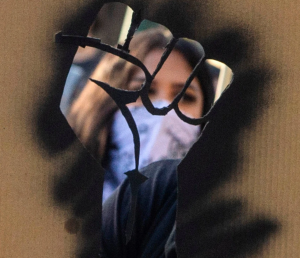It has taken a long time to get focused. It’s sobering to realize that the baseline message of Black life mattering has been running for generations, from Sojourner Truth’s anguished question, “Ain’t I a woman?” in 1851 to the Black sanitation workers in Memphis proclaiming, “I Am a Man,” in 1968 to Jesse Jackson’s revision of that declaration with “I Am Somebody” in the ’70s and ’80s, to the hashtag Black Lives Matter in 2013.
Over and over, Black people have asserted the simple but radical truth of their own humanity and worthiness, and over and over, America has not fully heard them. African-Americans kept up the messaging because they’ve had to — they’ve always known it’s Step 1 in our national process of racism recovery, and as anyone in a 12-step program can attest, you can’t make real progress with the higher steps until you get the first one right.
Our recovery has been complicated by the nature of our particular addiction. As a society we’ve been addicted to injustice — from slavery to lynchings to segregation to police brutality — all made possible by our repeated failure to embrace Step 1. Now that we are owning up to that failure, things look to be changing.
But can we change? History and culture are against it. Another one of our great national addictions is convenience, fueled by the uniquely American expectation that things essential for daily living be made cheap, easy and painless.
Racism is a form of convenience, in the sense that it’s designed to make life easier for its beneficiaries. So is white privilege — the phenomenon of not having to think about the costs of oppression, or about Black people at all.
Antiracism requires the opposite: engagement. We are starting to see it in the demands for police reforms, in the growing white rejection of symbols of white oppression like Confederate monuments and flags, even figures of presidents.
But this is all part of Step 1. Being truly antiracist will require white people to be inconvenienced by new policies and practices, legal and social, that affect everything in everyone’s daily lives, from jobs to arts and publishing.
It’s one thing to declare your support for Black Lives Matter with a lawn sign and quite another to give up segregated schools, or always seeing yourself and people like you as the center of the moral universe. The privilege to not engage is one that many may be loath to give up, even if they believe engagement is the right thing to do.
And yet the most optimistic part of me says that it could be that what has stood for so long is simply falling away. It could be that the latest Black assertion of “We are here” will be the one that breaks through with cumulative force of years of such assertions, opening a floodgate that will remain open not because whites allow it, but because it was supposed to be open all along.
If that happens, the road to recovery will not be just an ideal, but a straight line we can actually see.


